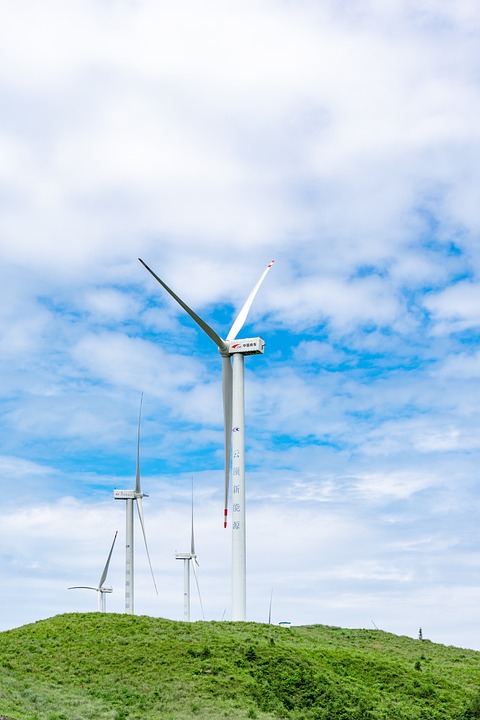Will the UN’s Climate Conference Deliver this Time?
The United Nations’ annual climate conference, known as COP (Conference of the Parties), is a critical event that brings together world leaders, diplomats, and climate experts to discuss and address the pressing issue of climate change. This year’s conference, COP26, is scheduled to take place in Glasgow, Scotland, from October 31 to November 12. As the world grapples with the devastating impacts of climate change, there is growing pressure on world leaders to deliver meaningful outcomes at this year’s conference.
What’s at Stake?
COP26 is crucial because it is the last best chance for the world to take collective action to limit global warming to 1.5°C above pre-industrial levels, as agreed upon in the Paris Agreement. The conference is expected to focus on several key areas, including:
Carbon Emissions Reduction
One of the primary goals of COP26 is to accelerate the reduction of carbon emissions to meet the Paris Agreement’s target. This requires countries to increase their ambition and submit new, more ambitious Nationally Determined Contributions (NDCs) to reduce greenhouse gas emissions. The conference will also focus on phasing down coal, a major contributor to climate change, and promoting clean energy sources.
Climate Finance
Another critical aspect of COP26 is the discussion around climate finance. Developing countries are calling for increased funding to support their efforts to transition to a low-carbon economy and adapt to the impacts of climate change. The conference is expected to focus on mobilizing $100 billion per year in climate finance for developing countries by 2025, as agreed upon in the Paris Agreement.
Adaptation and Resilience
COP26 will also focus on adaptation and resilience, recognizing that the impacts of climate change are already being felt around the world. The conference will discuss ways to enhance climate resilience, particularly in vulnerable communities, and promote climate-resilient infrastructure and sustainable development.
What’s Needed to Deliver?
To deliver meaningful outcomes at COP26, several key factors need to come together:
Increased Ambition
Countries must increase their ambition and submit new, more ambitious NDCs to reduce greenhouse gas emissions. This requires a shift from incremental progress to transformative change.
Climate Justice
COP26 must prioritize climate justice, recognizing that the impacts of climate change are disproportionately affecting vulnerable communities, including low-lying coastal areas, small-island developing states, and least developed countries.
Accountability and Transparency
Countries must be held accountable for their climate actions and commitments. The conference must prioritize transparency and regular reporting on progress towards achieving the Paris Agreement’s goals.
Civil Society Engagement
Civil society, including NGOs, youth, and indigenous communities, must be engaged and empowered to participate in the conference and hold governments accountable for their actions.
What’s at Risk?
If COP26 fails to deliver meaningful outcomes, the consequences will be severe:
Uncontrollable Climate Change
Without increased ambition and action, the world risks failing to limit global warming to 1.5°C, leading to catastrophic and irreversible climate change impacts.
Economic Instability
Climate change is already having significant economic impacts, including loss of productivity, damage to infrastructure, and increased costs for healthcare and emergency response. Without action, these impacts will only worsen.
Humanitarian Crises
COP26 must prioritize the needs of vulnerable communities, including those displaced by climate-related disasters, and address the root causes of humanitarian crises.
Conclusion
COP26 is a critical moment for the world to come together and take collective action to address the climate crisis. To deliver meaningful outcomes, countries must increase their ambition, prioritize climate justice, and engage with civil society. The consequences of failure are severe, and the world cannot afford to miss this opportunity to shape a sustainable and climate-resilient future.
FAQs
Q: What is COP26?
A: COP26 is the 26th Conference of the Parties to the United Nations Framework Convention on Climate Change, scheduled to take place in Glasgow, Scotland, from October 31 to November 12.
Q: What is the goal of COP26?
A: The primary goal of COP26 is to accelerate the reduction of carbon emissions to meet the Paris Agreement’s target of limiting global warming to 1.5°C above pre-industrial levels.
Q: What are the key areas of focus at COP26?
A: The conference will focus on carbon emissions reduction, climate finance, adaptation and resilience, and climate justice.
Q: What is the significance of COP26?
A: COP26 is the last best chance for the world to take collective action to address the climate crisis and limit global warming to 1.5°C.
Q: What can individuals do to support COP26?
A: Individuals can support COP26 by advocating for climate action, reducing their own carbon footprint, and engaging with civil society organizations working on climate issues.


_2.png?w=150&resize=150,150&ssl=1)
_1.png?w=150&resize=150,150&ssl=1)

_1.png?w=150&resize=150,150&ssl=1)
_1.png?w=150&resize=150,150&ssl=1)
